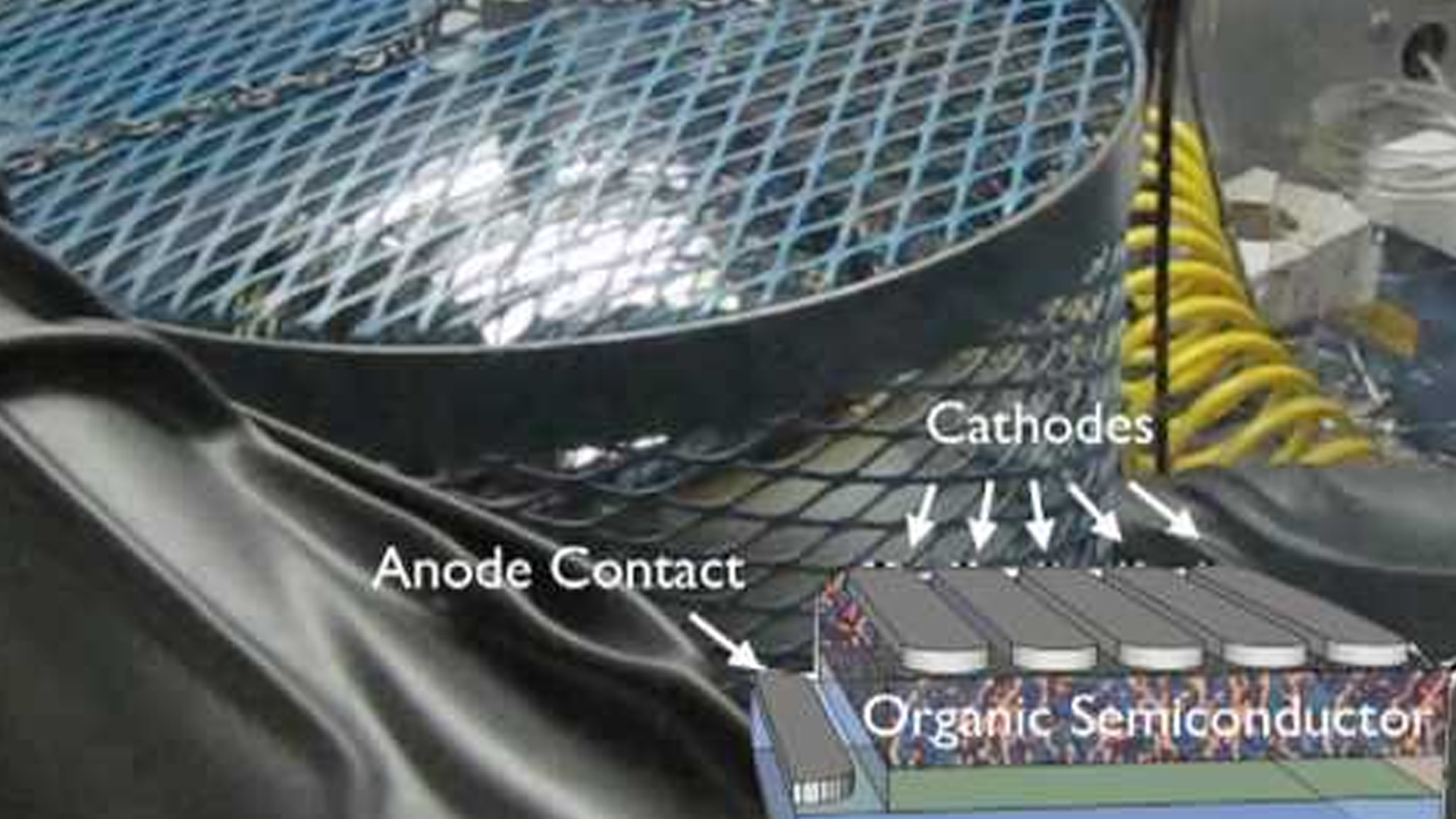Q-Cells Sold To Hanwha

Despite Isofoton's late bid to acquire Q-Cells creditors have agreed to an offer from South Korean business giant Hanwha in a move that will see development of the solar sector within a downturn. The acquisition that will see job losses but mainly from the Q-Cells administrative end. There was no reason given why the Hanwha offer was chosen over the late arriving Isofoton deal but with multiple partners and investors in the Spanish offer the larger South Korean company provided a strong international presence and clout.
At the creditor meeting in Dessau-Rosslau, the creditors of Q-Cells SE approved by a large majority the sale of the business operations to South Korean conglomerate Hanwha. Insolvency administrator Henning Schorisch had signed the contract last Sunday. As part of a "transferred restructuring process", Hanwha Group takes over 1,250 employees out of a total headcount of roughly 1,550 as well as most parts of the total Q.CELLS Group: in Germany, this pertains to the site in Bitterfeld-Wolfen with solar cell and solar module research, development and production as well as the administration site in Berlin; abroad, to the production site in Malaysia with an unchanged number of about 500 employees as well as some international sales companies. The integration will mainly lead to job cuts in Q.CELLS' administration division, as there is considerable overlap with the organisational structure of the Hanwha Group.
The purchase price is composed of the takeover of operational liabilities in the lower triple-digit millions as well as a cash component in the mid double-digit millions, while the cash component depends on the volume of additional liabilities that will have to be taken over. The purchase agreement is still subject to the approval of the relevant anti-trust authorities. The transaction is managed by Deloitte & Touche Corporate Finance GmbH as the exclusive M&A consultant for both, the insolvency administrator and the company.
With this deal, Hanwha Group is to obtain Q-Cells' headquarter office, cell and module production facilities (200MW/120MW) in Germany, cell production facility (800MW) in Malaysia and sales offices in US, Australia and Japan. The total cell production capacity acquired from this transaction is equivalent to 1GW. The total acquisition value is EUR 40 million (around KRW 55.5 billion) with possibility of further negotiations until closing.Hanwha has effectively renegotiated to buy in the existing loan agreement (MYR 850 million / around KRW 300 billion) signed between Q-Cells Malaysia and the Malaysian government. With a strong support shown by the Malaysian government, the loan has been structured in such ways that Hanwha can use the profits generated from Malaysian operations to pay back in the long-term.
"In the current macroeconomic and political environment, which is extremely difficult for Q.CELLS, it is a great success that we managed to maintain not only research and development, but also the production capacities at the Bitterfeld-Wolfen site," Schorisch emphasised today at the Q.CELLS headquarters in Bitterfeld-Wolfen. "While I regret the fact that there are certain job losses, I am very happy that Q.CELLS has found a strong partner in Hanwha, who has the necessary means to provide company, brand and staff with long-term perspectives again."
Through the takeover of Q.CELLS, Hanwha plans to expand its position as one of the globally leading players in the photovoltaic industry. Hanwha is one of the largest South Korean corporations with sales of USD 31.6bn in 2011. The company operates in various sectors, such as the chemical industry, insurances, banking, engineering, pharmaceuticals and construction. With its Chinese subsidiary Hanwha SolarOne, for example, the group is already active in the field of photovoltaics.
Schorisch praised again the enormous commitment of Q.CELLS' employees. "The value of the company and of the Q.CELLS brand is based on the expertise and loyalty of its employees," he said. "The successful sale would not have been possible, if people would have abandoned the company during these difficult times. I naturally regret all the more that it was not possible to take over everyone." Schorisch also thanked the management and stressed that the Q.CELLS management board acted professionally at all times, showed great loyalty and contributed with all their strength towards maintaining the company until the very end.
Schorisch has already started negotiations with the works council on reconciliation of interests and a social plan because of the required staff adjustments. Moreover, the insolvency administrator has already raised the prospect of funds to establish a re-employment and training company where those employees affected will be able to receive training and support with finding new jobs.
Q-Cells SE had filed for insolvency on 3 April 2012. In the months prior to this date, the legal basis for the planned financial restructuring fell away due to a decision made by the Oberlandesgericht Frankfurt (Higher Regional Court, Frankfurt/Main). The insolvency administrator Henning Schorisch from the law firm hww wienberg wilhelm had managed very quickly to stabilise business operations to an extent that no redundancies were necessary during the insolvency proceedings. Moreover, he had immediately started to look for investors.





























